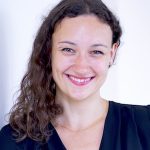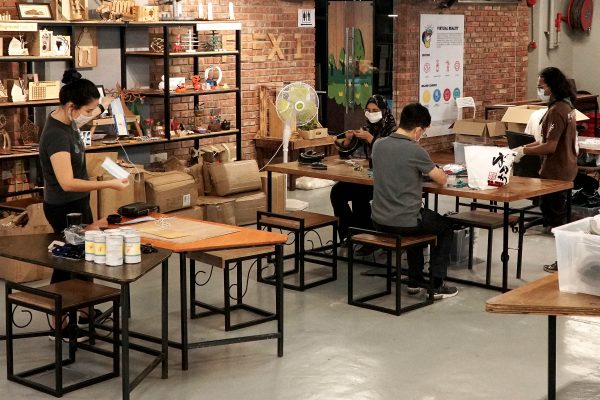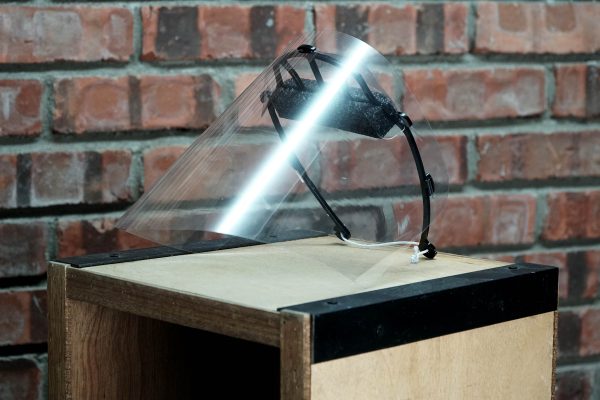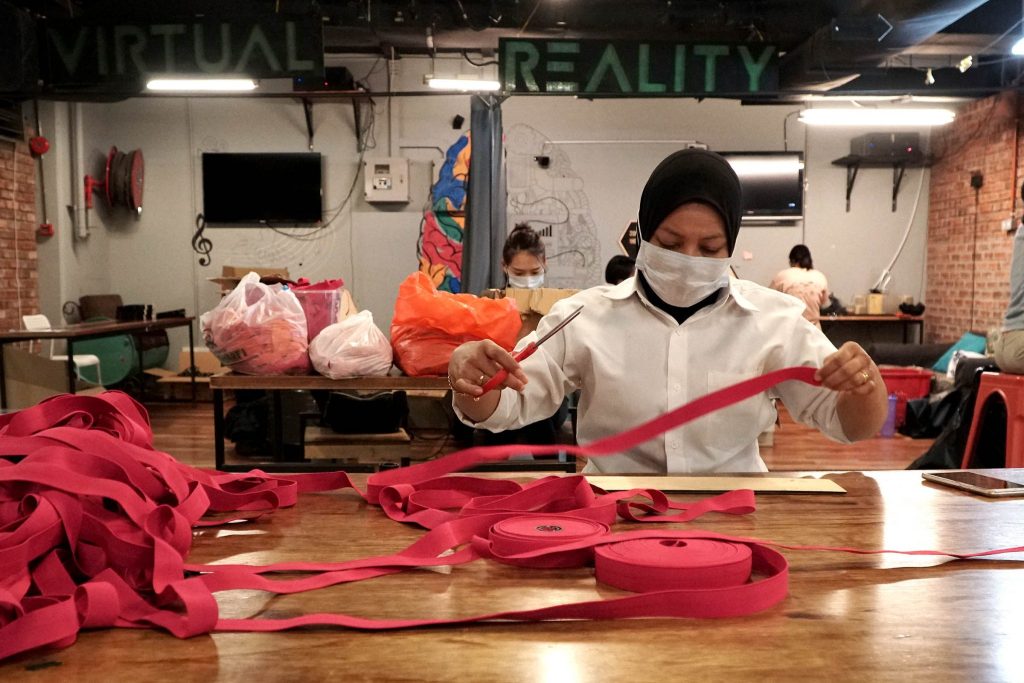
Zoe Tate, MBA Class of 2020
In the mid-afternoon on March 25, an urgent message came through the Asia School of Business WhatsApp chat group dedicated to COVID-19. “Hope everyone is safe. As you might know, Biji-biji has mobilized to manufacture emergency PPE for front liners (with authorization). We need home-based volunteers to help prepare and assemble. Materials will be delivered with instructions, picked up, sanitized and delivered to front liners.
If you are free to help (ASAP) please PM me.” It was Zoe Tate from the MBA Class of 2020. As COVID-19 infections soared in the weeks after the Malaysian government ordered a nationwide lockdown, hospitals were overwhelmed by a shortage of personal protective equipment (PPE), especially face shields. Without them, medical workers risk getting infected themselves.
The Biji-biji Initiative, a social enterprise which Zoe co-founded, and Me.reka, its “makerspace and education subsidiary, quickly sprang into action after Rashvin Pal Singh, the group CEO of Biji-biji, received a desperate call from a friend at Hospital Kuala Lumpur. “As a makerspace, rapid prototyping is core to what Me.reka does,” Zoe says in an interview. “It was not even a question of whether the team was going to help. When something like this happens, it’s in our nature to respond.”

Coordinating the response
The effort would go on to produce more than 18,000 face shields. As of April 11, the live counter at https://mereka.my/protecting-our-frontliners indicated deliveries had been made to some 50 hospitals involving 10 makerspaces and over 100 volunteers. A map on the website shows the extent of their collaboration with hospitals and makers across Peninsular and East Malaysia.
Hospitals needing PPE are on display alongside their outstanding orders and completed deliveries, together with the daily production capacity of different makerspaces. “Many people got in touch with us. Some have materials, some have machines and some need PPE equipment. It’s a huge coordination effort that’s evolving in real time. Currently we are managing on a crazy Excel,” Zoe wrote in ASB’s chat group.
The project was no less than a massive feat of coordination, Zoe says. Rather than go it alone, Me.reka decided to take a collaborative and decentralized approach to making the face shields. This meant not only sharing the PPE designs freely and activating a supply chain from scratch through various volunteers and good Samaritans, but also rapid prototyping using Me.reka’s makerspace tools such as 3D printers and laser cutters.
Zoe later wrote to the group chat saying, “if we could activate an Action Learning-style effort to get a functional beta site up, it could help to mobilize/activate and optimize more local efforts around the country.” She also reached out to people with experience using Airtable and Zapier, two coordination tools that have become a vital resource around the world in the battle against COVID-19.
Zoe eventually learned how to use them herself as she had to get the platform up and running in a hurry. But having just graduated from ASB, she had to learn how to build the database while juggling her new role at a United Nations agency in Kuala Lumpur. Adding to the difficulty of working during a restricted movement order, the team had to make the platform accessible to all stakeholders within the ecosystem so that PPE recipients could update it themselves in real time.
This would prevent situations where one hospital ends up with more face shields than it needs while another is running on empty. In any emergency situation, the absence of coordination can lead to disaster. “When you read the request forms, it’s quite harrowing to be honest,” Zoe says. “We had request after request coming in and we chose to prioritize public hospitals. We were also getting different departments from the same hospital making PPE requests, so it was quite intense.”
As Malaysia was in a lockdown, Me.reka also had to request for and receive police permission, as well as a special license to operate on-premise. On March 26, Zoe wrote this in ASB’s group chat: “We have been meeting the leaders of various hospitals and they are all worried and asking for equipment. We are simultaneously prototyping new things they are asking us for, which they expect they will need, as well as fulfilling the production of face shields. We delivered 400+ in the past three days.”
The skills she picked up during her MBA certainly came in handy, Zoe notes. “My contribution was to build the infrastructure, but from the MBA I learned how to be strategic and look at the bigger picture,” she says. “It was an opportunity to take what we have and create something of value, and then demonstrate a solution very quickly.”
Another vital lesson: when things fall apart, don’t panic. “In a moment of crisis, people can become paralyzed,” Zoe says. “But that’s when we should rise to the challenge. I think this is such an important message for us as MBA students.”

A collaborative effort
One thing Zoe will take away from this experience is that many hands make light work. “The response from everyone was quite incredible, but the scale of it is hard to quantify because it was so decentralized, and many people across the country did their part offline and behind the scenes,” she says. The movement would not have been possible without the help of various logistics providers including Lalamove, Grab, Parcelhub and many other SMEs and materials suppliers.
“There is an awesome group of makers in Sabah, Kinabalu Coders, who are also low-key data scientists,” Zoe says. “We were on a Zoom call with makers from all across Malaysia sharing information, designs for PPEs and best practices. It becomes immediately clear what the bottlenecks are when you have mass sharing like that.” The WhatsApp groups they were in also allowed Me.reka and other makerspaces to crowd-source ideas and solutions on the fly.
For instance, to reduce the risk of cross-contamination, someone suggested the use of UV light given its sterilization properties. The team quickly set up an ad-hoc sterilization facility in a vacant room at Me.reka’s makerspace in Publika that would disinfect PPE for 20 minutes. In a time of need, the ASB community also stepped up to contribute. Zoe gives credit to many of her MBA classmates. Hezam assisted with the database design.
Adriana connected her to an initiative in New York that built a similar public database with Airtable and Slack to organize grocery deliveries and other errands in the community. Amrutha coordinated a number of classmates at ASB Residency who volunteered to prepare materials at home. “What surprised me the most is that in a moment of crisis, no one knows what to do. If you have an idea, you can be the one to take the lead,” Zoe says.
“It was great to be part of the solution. If we prevented just one person from getting sick, then it has been worth it.” Me.reka is now moving into the second phase of its initiative, with plans to raise funds and scale up the development of a technology platform to coordinate decentralized production across the region.
The entire situation with COVID-19 should serve as a reminder to everyone of the power of working together, Zoe says. “It was a huge collective effort and we are just a small part of the story,” she adds. “People can create so much more value when they work with each other toward the same objective. I hope people remember that.”





